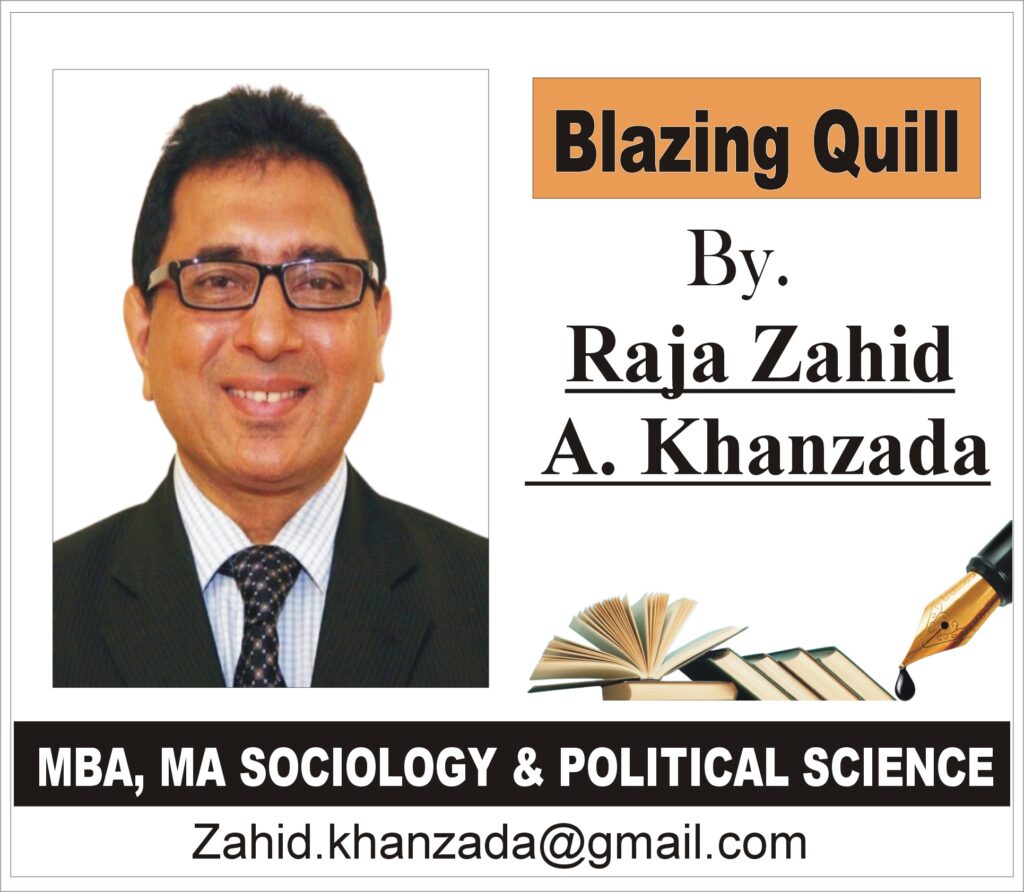Empty-Handed Return from America: They Knocked on Washington’s Door, but Even an Open Door Led Nowhere
By: Raja Zahid Akhtar Khanzada
The story doesn’t begin where Qasim and Suleman landed in the United States, nor does it end where they returned to London. The real story begins where clouds of hope floated over Washington’s skyline, and the truth unveiled itself where not a single drop of support ever rained down.
This is the same America that Imran Khan accused of orchestrating his ouster from power. The same America he claimed was complicit in a grand establishment-led conspiracy. And yet, ironically, that very America has now become the final hope for his release. Is this hypocrisy or political immaturity? A contradiction or simply a diplomatic miscalculation? If America’s power was feared, why provoke it? And if freedom was to be sought from it, why paint it as the enemy?
Khan’s sons, Suleman and Qasim—took to the streets of Washington with pleas for their father’s freedom, but their voices neither echoed through the halls of Congress nor shook the walls of the White House. Meetings happened, but not with any key Republicans, and certainly not with Trump. They met Richard Grenell, but it never went beyond a handshake and a photo. A meeting that was originally scheduled with a Sikh delegation was later framed as a political breakthrough on social media.
This campaign was political, not diplomatic. It was emotional, not pragmatic. And this visit, was unsuccessful, silent, and ineffectual.
The people Qasim and Suleman met in Washington had neither the authority nor the mandate to influence Pakistan’s internal affairs. The U.S. State Department’s spokespeople repeatedly made it clear, they will not interfere in Pakistan’s domestic politics. So then, what was the point of knocking on a door that was never going to open?
The truth is, Khan’s sons failed to secure any substantial support during their visit. They couldn’t raise an effective voice for their father on any meaningful international platform. If a little-known TV interview and a sympathetic post on X are considered diplomatic victories, then that’s nothing more than self-deception.
What Qasim Khan said upon returning to London was a reflection of both a son’s helplessness and the diplomatic frailty of a political movement. He said they were still waiting for U.S. help. But do they not realize that the very America their father accused of betrayal cannot now be expected to be the guarantor of his freedom?
Though Suleman and Qasim have expressed their willingness to return to Pakistan despite the risk of arrest, their return too is clouded in uncertainty. If they are granted visas, will they lead protests? Or is that just another rhetorical echo? Those who assert their nationality through NICOP, will they ever truly step up and embody Pakistani citizenship in action?
The American political figures they met may express sympathy over Imran Khan’s status as a political prisoner, but they cannot change State Department policy or influence decisions made by the White House. The U.S. diplomatic system doesn’t operate on sentiment, it runs on interests. And Imran Khan, however popular he may be, is not currently aligned with those interests.
If this visit proves anything, it is this: emotional appeals, viral rhetoric, and media optics do not move the levers of international diplomacy. Khan’s sons must understand that cases of political imprisonment are not resolved by knocking on foreign embassies, but by internal negotiations and a unified national narrative.
Diplomacy does not run on photo ops; it runs on relationships. And relationships form when narratives are consistent and positions are balanced. Imran Khan painted America as the villain, then sent his children to knock on that very villain’s door. This contradiction is visible not only to the public, but to the global diplomatic community as well.
Suleman and Qasim’s visit was not only ineffective, it exposed deeper fractures within PTI itself. The very workers who have stood tirelessly for Khan across the U.S. are now voicing frustration, claiming this was all a publicity stunt, not a serious effort toward securing release.
Perhaps the time has come for PTI to ask itself a difficult question:
If Imran Khan truly is an ideologyshouldn’t his freedom come from the power of the people, not the corridors of Washington?



